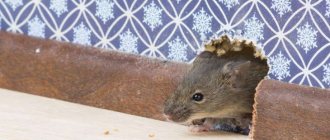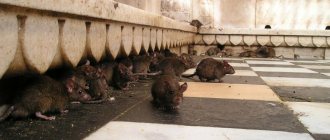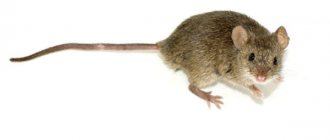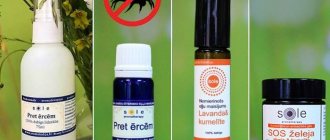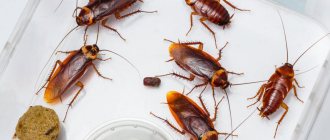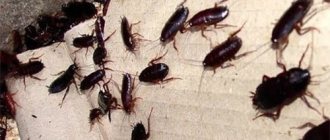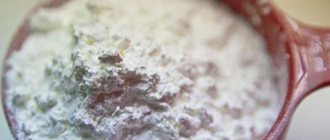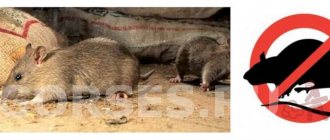Why “aromatherapy”?
Because it is a cheap, accessible, humane and safe way to get rid of rodents. Whichever other method you choose, you will have to face certain difficulties.
For example, the use of chemicals, despite their high efficiency, is not always possible. If there are children, allergy sufferers or pets in the apartment, the use of poisons can result in tragedy. In addition, this method, like the use of mousetraps, forces one to deal with the need to dispose of corpses, which is extremely unpleasant. Add to this the deadly smell if the rodent that has eaten the chemicals manages to hide securely before dying.
As for the ultrasonic device, it is not affordable for everyone. In addition, it works over a certain area, so on a large scale it requires knowledge of approximate mouse routes.
Against this background, phytoprotection recipes are an excellent alternative to getting rid of uninvited guests. Aromas that mice do not like cause the latter to hastily leave the premises and prevent them from repopulating.
Use in the home and garden
When using birch tar against mice in the house, you should understand that the rich smell of this product remains in the room for a long time. And to prevent things from becoming saturated with it, you need to put them in plastic bags and tie them tightly.
Application
To get rid of rodents, it is recommended to spray a concentrated solution based on birch tar in the corners, near burrows, and also apply it with a brush to the baseboards. Then you should close the room for 2 hours, and after that time, ventilate well. It is not recommended to wash off the product until signs of rodent activity disappear. If necessary, treatment should be repeated once a week, and it can also be used periodically as a preventive measure.
In the case of using birch tar against mice and rats in outbuildings, as well as in the basement or attic, it is recommended to soak grain in a concentrated solution and spread such “odorous” baits throughout the room. If necessary, spread the repellent several times until the rodents are completely eliminated will disappear.
This product can also be used to control rodents in the garden. However, birch tar cannot be used during the flowering period of crops, since its smell repels not only rodents, but also pollinating insects, which will lead to a decrease in yield.
When using birch tar in the garden against mice, it is necessary to soak straw or sawdust in the working solution, and then lay such mulch in the root circle of trees or shrubs.
You can also use a solution of birch tar in the garden. In this case, it needs to be poured into a spray bottle and sprayed between the rows of plantings. It is recommended to repeat the procedure once a week to protect the crop from voles.
When using birch tar, precautions must be taken. Its rich smell can cause headaches. To prevent this, you need to work with the product in a respirator. You should also wear protective clothing, since once it gets on the fabric, it is impossible to remove the stain.
Using the scents of natural enemies
It's no secret that rodents are afraid of cats, which are considered their main “thunderstorm.” However, this trend is more true for village cats than for pets living in comfortable apartments.
But should you be upset if your purr runs away in fear from one type of mouse, and you can’t rely on his hunting instincts? No, because you can drive out uninvited gray guests using the smell of a cat, or rather its urine. To do this, you can place used cat litter near the holes or soak rags with urine. Inhalation of ammonia vapor leads to a sharp decrease in the number of mouse offspring, causing the population to die out faster.
However, even more than cats, small rodents are afraid of snakes and rats. For the former, they act as natural food, while the latter fight with them for the same food sources and destroy their burrows. Therefore, mice can smell the excrement of their enemies a mile away and avoid them. You can easily become the owner of this “wealth” in any pet store.
Using these methods in an apartment is not very pleasant, but they are quite suitable for dachas, vegetable gardens and non-residential premises.
How to use oil so that it “works” as it should
So that rodents start to avoid the apartment, I take several cotton pads and thoroughly moisten them with oil purchased at the pharmacy (to save money, you can use it not in its pure form, but mixed with sunflower oil at the rate of 20 drops of essential oil per 50 ml of vegetable oil). I place the treated discs in places through which rodents can enter the apartment (if you know exactly where the holes are through which they enter, be sure to place them in them).
Accidentally caught on camera: “The Queen’s Gambit” increased sales of Spanish chess
We buy beans, prepare them in the correct proportion: the secrets of the most delicious coffee
Doctors reported: a drug for gout has been found effective for the treatment of COVID-19
To be safe, I seal the holes with a bag so that the mint aroma does not spread too intrusively into the apartment (but keep in mind that there will still be a slight smell).
I also make a peppermint scented spray. To do this, I pour 300-400 ml of water into a spray bottle, add 10-15 ml of pharmaceutical alcohol and 15-20 drops of peppermint essential oil.
I shake all this thoroughly, and with the finished mixture I treat the baseboards, floors, the lower part of the walls and furniture in those places near which there are possible ways for rats and mice to enter the room. This product also works very effectively, but it needs to be sprayed more often than replacing cotton pads.
The magical power of nature
There are a huge number of plants that effectively fight against mice. What aroma do they not tolerate?
- Blackroot is a poisonous perennial that not only repels mice, but also kills them. In its thickets, the pest quickly dies, for which it does not even need to taste the grass. Thanks to the large amount of poisonous alkaloids, the rodent simply goes crazy. It is not surprising that mice sense a threat and avoid the blackroot.
- Elderberry root, which produces poisonous hydrocyanic acid.
- Swamp wild rosemary, the smell of which rodents cannot stand.
Remember that these three plants are poisonous, so they are not recommended for use in a home where there are small children, cats and dogs. There is a chance that they will not resist the temptation to try interesting twigs for their teeth. Don’t forget about personal safety measures and use gloves.
In residential areas, it is better to use herbs that will definitely not cause problems. The aroma will help drive out pests:
- wormwood with a characteristic bitter scent;
- hazel grouse bulbs with a sharp garlic amber;
- peppermint, the smell of which is pleasant to humans, but “deadly” to rodents;
- tansy, feverfew and regular chamomile;
- aboveground parts of beans, tomatoes and potatoes.
With these plants, which rodents are afraid of, you can fumigate the room, plant them in pots, or arrange them in bunches, after dipping them in boiling water to enhance the aroma.
If you live in a private house, they can be sown en masse on the site. According to reviews from summer residents, daffodils, chrysanthemums, lavender bushes and heather work well to protect the garden from pests. Since mice are very careful with their fur, even ordinary burdock, planted along the perimeter of the territory and tightly sticking to the animal, can help in the fight against them.
Essential extracts from all of these herbs are highly effective, as they emit a much more concentrated aroma. Simply moisten cotton pads or cloths with a few drops of essential oil and place them in areas where rodents are likely to move and live. Don't forget to periodically renew the fading scent.
What smells are mice afraid of?
Experienced housewives know what smell mice don't like. Through long-term observations, they discovered that rodents cannot tolerate the aromas of certain plants, spices, synthetic fragrances and even essential oils. The mouse is also well repelled by the natural odors of animal enemies (cats, snakes, hedgehogs).
Plants
Some plants not only repel rodents with their smell, but also affect their well-being.
The following representatives of the flora are popular:
- Aroma of wormwood. This herb has a strong, persistent aroma that mice cannot tolerate. Freshly picked wormwood branches are placed around the house, especially in places where mice have left their excrement. This plant is also used to fumigate living spaces. Dry twigs are set on fire and moved from room to room. The smoke seeps into the most remote corners, driving away rodents.
- Tansy. This plant has an aroma reminiscent of camphor. Bouquets are made from it and laid out in different rooms, as well as in basements. This natural insecticide is good at repelling pests.
- Black elderberry. The root of this plant contains hydrocyanic acid, which is poisonous to both animals and humans. And elderberry branches emit an aroma that mice cannot tolerate. They are laid out in cellars and food pantries.
- Black root or dog tongue. It is a poisonous weed that helps control rodents and garden pests. Affects the nervous system of mice. They, hearing it at a fairly large distance, try to leave the room. People practically don’t feel this aroma, but it simply drives mice crazy.
- Marsh rosemary. This is a plant containing poisonous oils. If a mouse comes into contact with wild rosemary branches placed in the corners of the room, it will die in the near future. And others, sensing it from afar, hurriedly leave their home.
- Chamomile. Many people like the smell of this medicinal plant, but mice absolutely cannot stand it. Dried chamomile bouquets are placed next to food supplies. Chamomile tincture is also added to the water during cleaning.
Some of the listed plants are appropriate to plant in a personal plot. When laying them out in a house or apartment, it is important to assess where pests most often run and leave bunches of plants mainly in those places.
If it is difficult to find fresh plants, then you can buy herbal mixture or individual extracts and tinctures at the pharmacy. They are no less effective.
If dry raw materials are used, then it will be needed 2-3 times more than fresh.
If a housewife prefers poisonous plants, then she should protect herself and think about her health. It is advisable to use rubber gloves, a respirator and protective clothing.
Upon completion of work aimed at combating rodents, protective equipment should be thrown away, burned or washed very well.
Spices
If you don’t want to tinker with plants, then food spices, available in any housewife’s kitchen, can be an alternative aromatic means of control.
Mice will avoid food supplies if they smell the following odors:
- clove;
- coriander or cilantro;
- chili pepper;
- sage
Mice also don't like bay leaves. It is effective to use these spices whole or crushed. A persistent aroma appears that repels rodents when sage leaves are burned. The smell of coffee, especially recently roasted coffee, also repels pests.
Liquids with a strong odor
Voles cannot tolerate the smell of the following liquids:
- Ammonia solution. Fill a saucer with ammonia and place it near the mink. This product is also used to wipe various surfaces where rodents have been spotted. To prepare a working solution, combine 10 ml of ammonia with 1 liter of water. This smell reliably repels mice.
- Vinegar. This product is available in any kitchen. The saucer is filled with pure vinegar or diluted with water and placed near the minks. They also use a vinegar solution to thoroughly clean the room. The product will effectively repel mice if its persistent aroma persists for a long time.
- The smell of tar. People also do not tolerate this aroma well, so this method of repelling mice is more suitable for non-residential premises. If housewives want to use it at home, then they can arrange to stay with relatives or friends for a while. Dampen a rag with tar and then place it where rodents are most likely to be. Gasoline, kerosene, and car oil have similar repelling properties.
- Chlorine smell. Any pests do not like products with a strong chlorine scent. Products containing chlorine are used to clean floors 3-4 times a week.
Using the contents of the kitchen cabinet
If you don’t have a cat and don’t want to spend money on purchasing plant extracts, ordinary spices available in the arsenal of any housewife will help. The smell will help save supplies from the invasion of gray guests:
- carnations;
- coriander or cilantro;
- red pepper;
- sage;
It is allowed to use powder or seeds of these seasonings. Dry sage leaves, which are best burned, are also suitable. The strong aroma of coffee will also help repel rodents; freshly roasted beans work best.
Also, pests do not like the scent of vinegar, which can be poured into small containers and placed around the room. Although this option is more suitable for protecting cottages from rodents in the winter, since constantly inhaling a pungent odor is not only unpleasant, but also unsafe. The aroma of bleach scattered in the corners is also suitable for the same purpose.
